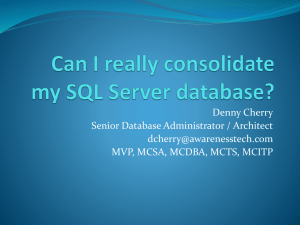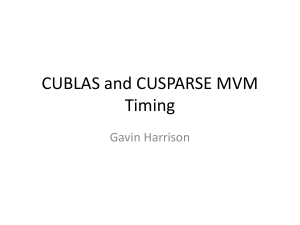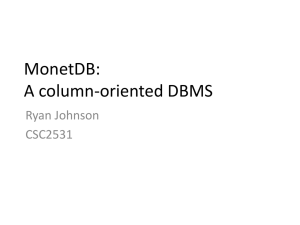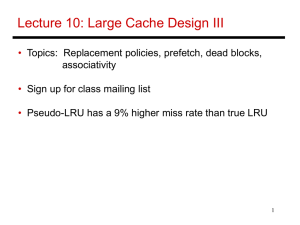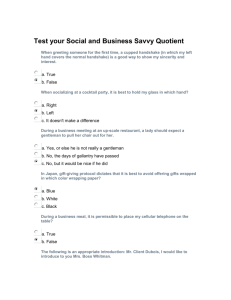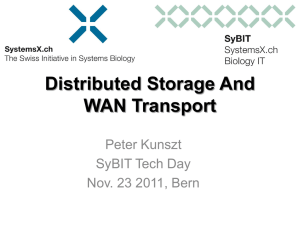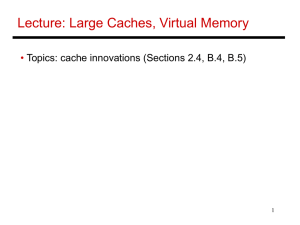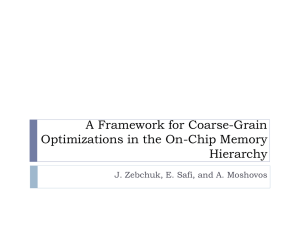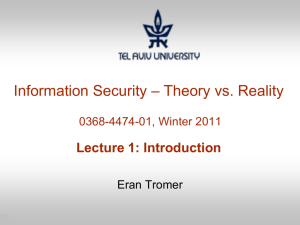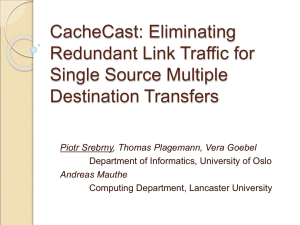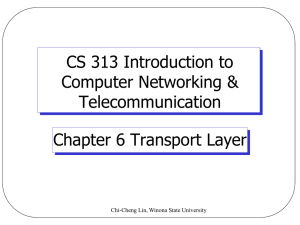websocket-slides
advertisement
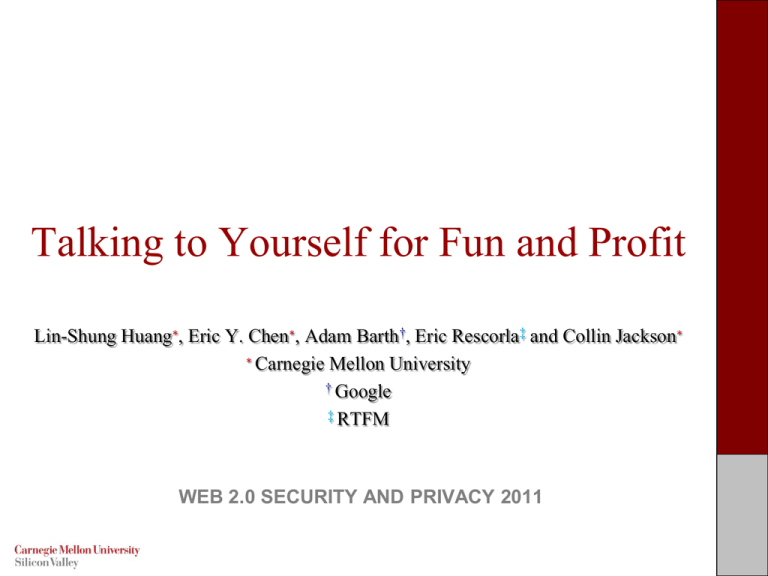
Talking to Yourself for Fun and Profit Lin-Shung Huang∗, Eric Y. Chen∗, Adam Barth†, Eric Rescorla‡ and Collin Jackson∗ ∗ Carnegie Mellon University † Google ‡ RTFM WEB 2.0 SECURITY AND PRIVACY 2011 Bringing Sockets to the Web • Web applications need to talk to the cloud • But HTTP is inefficient – E.g. chat, multiplayer games • Plug-ins and HTML5 provide socket APIs Plug-ins: Native: • Modest amounts of security analysis… Existing Approaches • Flash Player: Authorizes by policy files <policy-file-request /> <allow-access-from domain="*" /> B.com 01100111011101… • Java: Only talks to yourself B.com A.com 01100111011101… What could possibly go wrong? Beware of Transparent Proxies • Inspect and modify HTTP traffic – Content filtering – Web acceleration GET / HTTP/1.0 Host: a.com GET / HTTP/1.0 Host: a.com HTTP 200 OK Cache-Control: public <html>… HTTP 200 OK Cache-Control: public <html>… Cache hit! GET / HTTP/1.0 Host: a.com HTTP 200 OK Cache-Control: public <html>… A.com IP Hijacking [Auger '10] • Allows connection to unauthorized destinations if routing by Host header Alice Flash Player attacker.com IP: 2.2.2.2 To 2.2.2.2 port 843: <policy-file-request /> Route by IP attacker.swf To 2.2.2.2 port 80: GET / HTTP/1.1 Host: target.com To 2.2.2.2 port 843: <policy-file-request /> <allow-access-from domain="*" /> Route by Host target.com IP: 1.1.1.1 Cache Poisoning • Even worse if routing by IP, and caching by Host header Alice Java VM attacker.class attacker.com IP: 2.2.2.2 Proxy To 2.2.2.2 port 80: GET /script.js HTTP/1.1 Host: target.com Route by IP Cache by Host Bob To 1.1.1.1 port 80: GET /script.js HTTP/1.1 Host: target.com Cache hit! Cache script.js script.js target.com IP: 1.1.1.1 How bad is it? • Advertising network experiments – $100 = 174,250 impressions – Observe browsers in the wild – Mount proof-of-concept attacks against our servers Observed Vulnerabilities • IP hijacking – Java: 3,152 of 51,273 (6.1%) – Flash Player: 2,109 of 30,045 (7%) • Cache poisoning – Java: 53 of 30,045 (0.18%) – Flash Player: 108 of 51,273 (0.21%) – Less than $1 per exploitation! Designing HTML5 WebSockets • Strawman “consent” protocols 1. POST-based handshake 2. Upgrade-based handshake 3. CONNECT-based handshake • Proposed modifications – Mask attacker-controlled bytes Strawman #1 • POST-based handshake – For HTML form elements – IP hijacking: 1,376 of 49,218 – Cache poisoning: 15 of 49,218 Strawman #2 • Upgrade-based handshake – For layering TLS over HTTP – IP hijacking: 174 of 47,388 – Cache poisoning: 8 of 47,388 Strawman #3 • CONNECT-based handshake – For tunneling TLS through proxies – 2 spoofed HTTP requests routed by IP Frame Masking • Mask attacker-controlled bytes – Raw bytes on the wire should not be chosen by attacker – Stream cipher e.g. AES-CTR-128 – Per-frame random nonce – XOR cipher as alternative Performance (a) 10 byte data frames (b) 100 byte data frames (c) 1000 byte data frames Reaction • Firefox and Opera temporarily disabled HTML5 WebSockets • The WebSocket Protocol working group adopted a variant of our proposal, requiring XOR-based frame masking – Firefox dev build – Microsoft WebSockets prototype Conclusion • Roughly 7% browsers are behind proxies with implementation errors • Protocols designers should consider how attackers can manipulate data to fool network intermediaries • HTML5 WebSocket protocol is work in progress, we also recommend Java and Flash Player to address this issue Thanks!

